Speaker
Description
Almost entire area of Baltics belongs to the same climate type, Dfb (according to the Köppen climate classification), which is characterized by humid continental climates with warm (sometimes hot) summers and cold winters. In the last decades whether conditions on the western part of Lithuania and Latvia more characterized by temperate maritime climates - there has been a transition (and still ongoing) to the climate type Cfb, that slightly changes seasonal patterns in air temperature regime as well in occurrence timing – phenological events in nature.
Temporal and spatial changes of temperature regime have been examined in whole territory of Latvia. We used two type of climatological data sets: gridded daily temperature from the E-OBS data set version 24.0e (Cornes et al., 2018) and direct observations from meteorological stations (data source: Latvian Environment, Geology and Meteorology Centre). We have digitized and analysed more than 47 thousand phenological records, fixed by volunteers in period 1970-2018 in Latvia for 8 taxsonomic groups.
The temperature regime has changed significantly in the last century - seasonal and regional differences can be observed in the territory of Latvia, that significantly influence seasonal events in nature, e.g., phenological events. Over the last 60 years (1961–2020), the annual mean temperature has increased by 1.2°C across Latvia, with the largest increase during winter season. Climate warming has accelerated during the most recent climate normal by 0.5°C compared to the previous period.
More than 80% of spring phenological data series shows negative tendency as reported in most scientific publications on European phenology. In our data set, overall, autumn phenologies are occurring later over time or the trends are neutral.
The shifting of climate types slightly influences seasonality in Latvia landscape by changing temperature regime as well timing of phenological events in nature.
This study was carried out within the framework of the “Climate change and sustainable use of natural resources” institutional research grant of the University of Latvia (No. ZD2010/AZ03)
References:
Cornes RC, van der Schrier G, van den Besselaar EJM, Jones PD (2018) An Ensemble Version of the E-OBS Temperature and Precipitation Data Sets. J Geophys Res Atmos 123:9391–9409. https://doi.org/10.1029/2017JD028200

